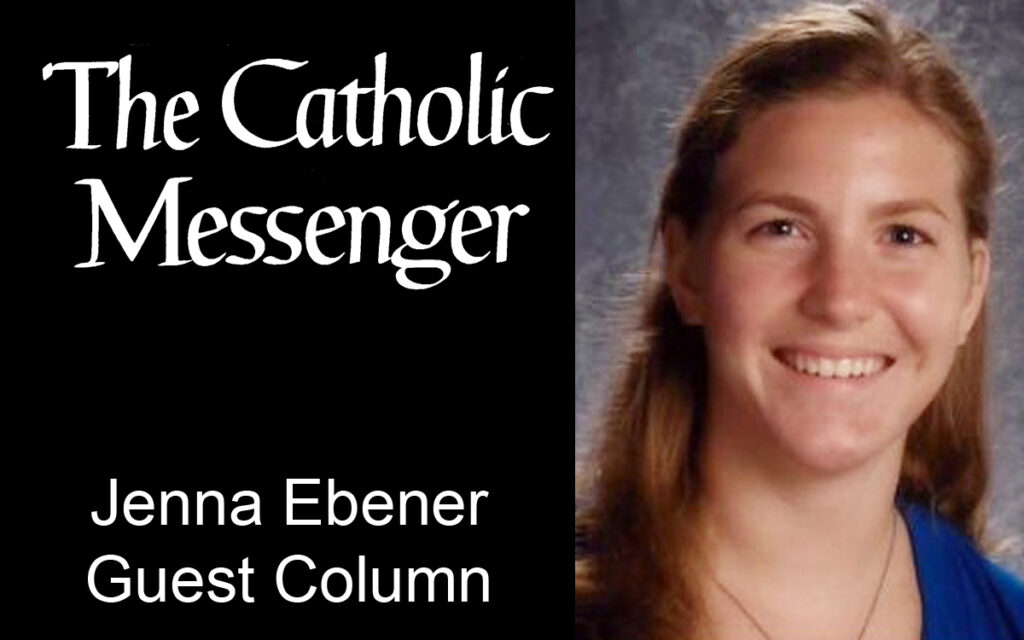 By Jenna Ebener
By Jenna Ebener
We recently had a Gospel reading about the end of the world. The first time I heard it, I only focused on the intense suffering that is going to happen before Jesus comes again. I could not help but think about the wars, natural disasters and political and economic unrest that seem to constantly plague our current world. However, as I read this Gospel for the second time to a group of residents at a nursing home, certain phrases stood out to me, phrases of hope. I was able to hear Jesus say: “do not be terrified; for such things must happen first;” “awesome sights and mighty signs will come from the sky;” “I will give you a wisdom in speaking;” and “not a hair on your head will be destroyed” (Luke 21: 9, 11, 15, 18).
These phrases reminded me that God does not cause our suffering. He gave us the gift of free will and suffering comes from humanity and our choices. Yet, while God is not the source of our suffering, he is ever-present and with us during our suffering. He is with us every step of the way, as long as we remember to seek him out. I believe that when we suffer we can most strongly see the importance of connection.
We are all human and suffering is a part of life. Our instinct is often to push our suffering away, yet when we turn towards it and sit with it, we can see the beauty that lies underneath. That beauty may take many forms. It might be self-awareness or self-compassion, connection with others through words or physical touch or the appreciation of having even a moment of peace or contentment. The more we sit with the suffering of others and ourselves, the more we see the joy that can coincide with suffering and truly appreciate that joy.
Recently, I was talking with a student who was having a hard day. He is nonverbal and was expressing his bad mood through hitting others. As I sat with him, I talked to him about how it is okay to feel angry and how challenging it can be to feel strong emotions. I also talked to him about ways we can safely express our intense emotions while still respecting others. As I spoke to him, he held my gaze and then reached out for a hug.
I have had countless experiences like that one this school year and without fail they all have led to moments of deep connection. We often worry that we will not have the right words when someone is struggling or we try to think of how to “fix” the suffering. My experience has shown me that the simple act of taking time to listen and to be compassionately present matter more than words. It may not feel like enough, for the suffering remains, yet it is a reminder that we are not alone and that gives us the strength to keep going.
As you sit down to enjoy a Thanksgiving meal or start to prepare for the beautiful season of Advent, I encourage you to see evidence of suffering or conflict with others as an opportunity to embrace our shared humanity. I pray that you see that you are not alone and that your awareness leads to connection with others.
A meditation practice that focuses on loving kindness makes it easy to put this concept into action. All you do is repeat phrases of self-compassion first towards yourself, then towards loved ones and then towards all beings. So, I end today with some of those phrases. May they remind you that every day someone is saying these phrases just for you: May you be safe. May you be healthy. May you accept yourself as you are. May you live with ease.
(Jenna Ebener, a graduate of St. Ambrose University in Davenport, is a social worker at a school in Colorado for students with a combination of medical, cognitive and behavior disabilities. She relies on God every day to aid her on this wonderful, yet intense journey.)











